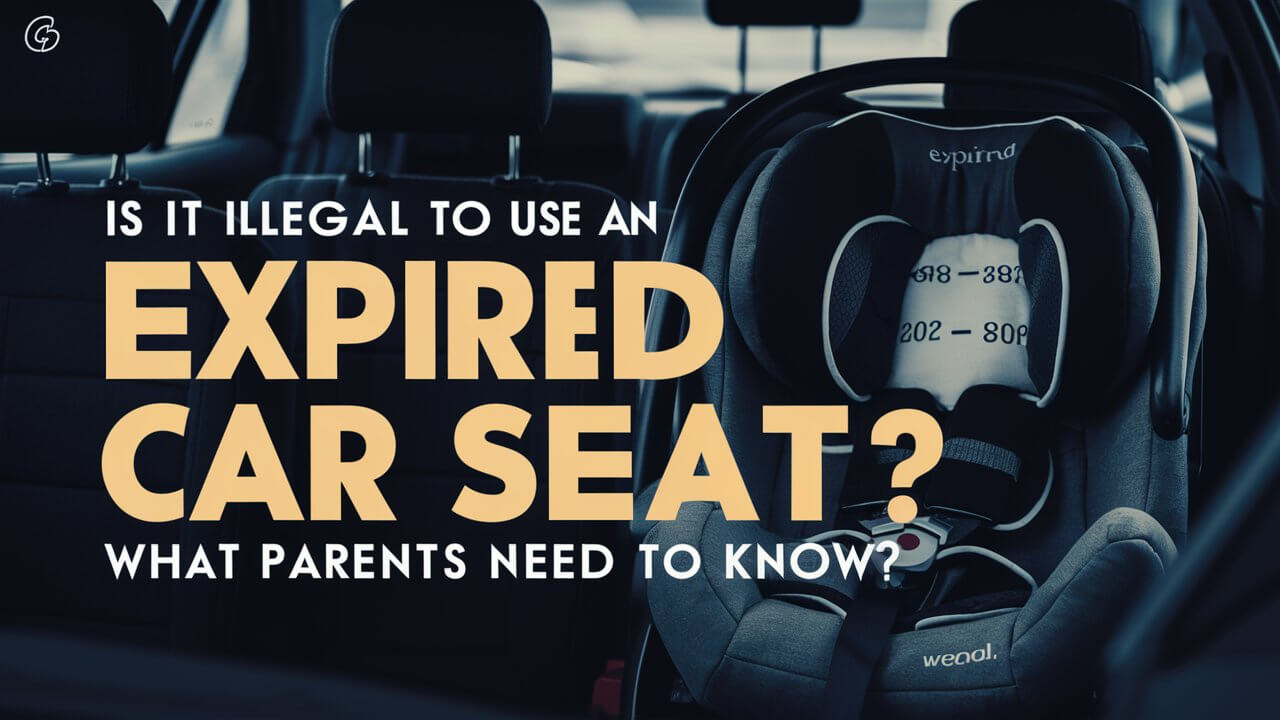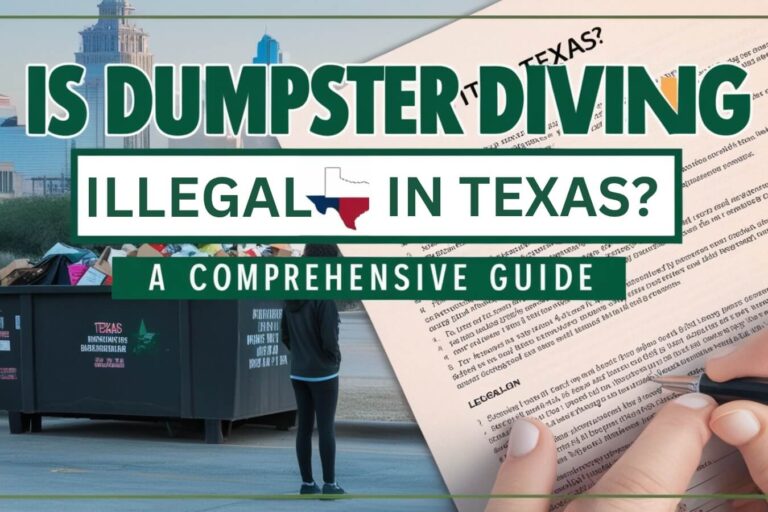Is It Illegal to Use an Expired Car Seat? What Parents Need to Know

Car seats are crucial for keeping children safe during car rides. But what happens when these safety devices reach their expiration date? Is it illegal to use an expired car seat? While it’s not strictly illegal in most places, using an expired car seat can put your child at risk and may violate broader child safety laws. Let’s dive into the details of car seat expiration, its legal implications, and what you need to know to keep your little ones safe on the road.
Understanding Car Seat Expiration Dates
Car seats don’t last forever. Manufacturers set expiration dates to ensure the seats provide optimal protection for children. But why do they expire, and how can you find out when your seat is past its prime?
Why do car seats expire?
Car seats expire for several reasons:
- Material degradation: Plastic and other components can weaken over time.
- Evolving safety standards: New regulations may make older seats obsolete.
- Wear and tear: Regular use can affect the seat’s integrity.
- Technological advancements: Newer models often have improved safety features.
How to find your car seat’s expiration date
Most car seats have their expiration date clearly marked. Look for:
- A sticker on the seat’s shell
- Information printed on the seat’s base
- Details in the instruction manual
Can’t find the date? Contact the manufacturer with your seat’s model number and manufacturing date.
Typical lifespan of different car seat types
Car seat lifespans vary depending on the type:
- Infant car seats: Usually 6 years
- Convertible car seats: Often 7-10 years
- Booster seats: Typically 6-10 years
Always check your specific model’s expiration date, as these can vary by manufacturer.
Legal Implications of Using Expired Car Seats
While there’s no federal law explicitly banning expired car seats, using one could still land you in legal hot water.
Federal laws on car seat expiration
The National Highway Traffic Safety Administration (NHTSA) doesn’t mandate expiration dates for car seats. However, they strongly recommend following manufacturer guidelines, which include expiration dates.
State-specific regulations on expired car seats
Some states have laws requiring car seats to be used according to manufacturer instructions. This could be interpreted to include following expiration dates. Check your local laws to be sure.
Potential consequences of using an expired car seat
Using an expired car seat might lead to:
- Traffic citations
- Fines
- Increased liability in case of an accident
More importantly, it puts your child at unnecessary risk.
Safety Risks Associated with Expired Car Seats
An expired car seat isn’t just a legal issue—it’s a safety concern. Here’s why:
Material degradation and its impact
Over time, car seat materials can:
- Become brittle
- Develop hairline cracks
- Lose their shock-absorbing properties
These changes can seriously compromise the seat’s ability to protect your child in a crash.
Outdated safety features and standards
Car seat technology is always improving. An expired seat might lack crucial safety features like:
- Side-impact protection
- Energy-absorbing foam
- Advanced harness systems
Crash test performance of expired seats
While there’s limited public data on how expired seats perform in crashes, manufacturers conduct extensive testing to determine expiration dates. It’s safe to assume an expired seat won’t perform as well as a new one in an accident.
Signs Your Car Seat May Be Unsafe (Even If Not Expired)
Even if your car seat hasn’t reached its expiration date, certain signs indicate it’s no longer safe to use.
Visible damage or wear
Look out for:
- Cracks in the plastic shell
- Frayed straps
- Rusted metal parts
- Worn padding
Any of these can compromise the seat’s safety.
Recall notices
Manufacturers occasionally recall car seats due to safety issues. Check the NHTSA website or your seat manufacturer’s site regularly for recall information.
History of accidents
If your car seat has been in a moderate or severe crash, it needs to be replaced—even if it looks fine. The internal structure could be compromised.
What to Do with an Expired Car Seat
Once your car seat expires, it’s time to say goodbye. But how?
Proper disposal methods
Don’t just throw it in the trash. Someone else might find and use it, putting a child at risk. Instead:
- Cut the straps
- Remove and discard the padding
- Write “EXPIRED” on the plastic shell with permanent marker
- Break down the plastic parts if possible
Recycling options
Some areas have car seat recycling programs. Check with your local recycling center or waste management department.
Trade-in programs
Retailers like Target occasionally offer car seat trade-in events. You can get a discount on a new seat while ensuring your old one is properly disposed of.
Buying a New Car Seat: What to Consider
When it’s time for a new car seat, keep these factors in mind:
Choosing the right type for your child
Consider your child’s age, weight, and height. Options include:
- Rear-facing seats for infants and toddlers
- Forward-facing seats for older toddlers and preschoolers
- Booster seats for school-age children
Key safety features to look for
Modern car seats often include:
- Five-point harness systems
- Side-impact protection
- Energy-absorbing foam
- Easy-to-adjust straps
Installation tips for maximum protection
Proper installation is crucial. Tips include:
- Read the manual thoroughly
- Use the LATCH system if available
- Ensure the seat doesn’t move more than an inch in any direction
- Have your installation checked by a certified technician
Maintaining Your Car Seat to Maximize Its Lifespan
Proper care can help your car seat last until its expiration date.
Cleaning and care instructions
Follow the manufacturer’s guidelines, but generally:
- Use mild soap and water for most cleaning
- Avoid harsh chemicals
- Air dry the seat completely before use
Proper storage when not in use
If you’re storing the seat:
- Keep it in a cool, dry place
- Avoid direct sunlight
- Don’t stack heavy items on top of it
Regular safety checks
Periodically inspect your seat for:
- Loose screws or parts
- Worn straps or padding
- Expired or missing labels
Common Myths About Car Seat Expiration
Let’s debunk some common misconceptions:
“It’s just a marketing ploy”
While it’s true that expiration dates ensure ongoing sales, they’re primarily about safety. Manufacturers invest heavily in testing to determine appropriate lifespans.
“Plastic doesn’t degrade that quickly”
While plastic can last for centuries in a landfill, car seats endure extreme conditions—hot cars, cold winters, and the stress of daily use. These factors accelerate degradation.
“Expiration dates are too conservative”
Expiration dates include a safety margin, but they’re based on extensive testing and real-world data. It’s not worth risking your child’s safety to squeeze out a few extra months of use.
Expert Opinions on Car Seat Expiration
What do the professionals say about expired car seats?
Pediatrician recommendations
The American Academy of Pediatrics strongly advises against using expired car seats, citing safety concerns.
Safety organization guidelines
Organizations like Safe Kids Worldwide echo manufacturers’ guidelines on expiration dates.
Manufacturer perspectives
Car seat makers unanimously recommend replacing expired seats, based on their testing and engineering data.
International Perspectives on Car Seat Expiration
How do other countries handle car seat expiration?
Policies in other countries
Many countries, including Canada and Australia, have similar guidelines to the U.S. regarding car seat expiration.
Global safety standards
While specific regulations vary, most developed countries have stringent car seat safety standards that include consideration of seat age.
The Future of Car Seat Safety and Expiration
What’s on the horizon for car seat technology and lifespan?
Emerging technologies in car seat design
Future car seats might include:
- Smart sensors to alert parents of improper installation
- Materials that better withstand aging
- Integrated airbag systems
Potential changes to expiration guidelines
As materials and design improve, we might see:
- Longer expiration periods
- More precise expiration dates based on use and conditions
- Digital tracking of seat age and condition
Wrap UP
While it’s not explicitly illegal to use an expired car seat in most places, it’s definitely not recommended and could potentially violate child safety laws. The risks far outweigh any money saved by using an outdated seat. Your child’s safety is paramount, so always use a car seat that’s within its expiration date and properly maintained. Remember, when it comes to car seats, newer is almost always safer. Don’t gamble with your child’s life—replace that expired car seat today.






